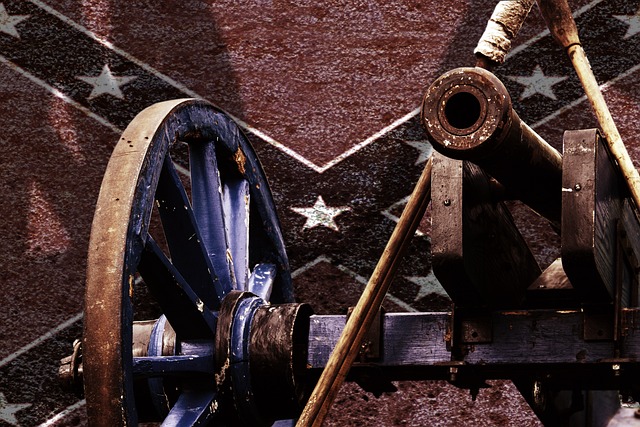The Scandalous Scandal Search: Negative Campaigning and Nikki Haley
Even if you have been living under a rock, you surely have heard of the “shocking gaffe” that Presidential candidate, former South Carolina Governor, and United States Ambassador to the United Nations, Nikki Haley made over a week ago regarding the Civil War.
Campaigning in New Hampshire, Haley was asked what she thought was the cause (singular) of the Civil War. She responded to the apparently bad motivation of the questioner by quasi-angrily referencing that the causes included “how the government was going to run, the freedoms and what people could and couldn’t do.”
After her answer, Democratic opponents and Republican primary opponents shouted “Eureka” regarding the rising Republican candidate, and some competing contenders claimed some variation of, as Ron DeSantis vastly overstated, that “this shows this is not a candidate that’s ready for prime time…the minute that she faces any time of scrutiny she tends to cave.”
The issue of the Civil War’s being primarily about slavery used to be an argument that was derided by progressives as falsely complimentary to the North’s motivations in the War Between the States, that it was fought more tellingly for economic reasons.
Haley, subsequent to the initial fracas over her answer, amid claims by her and others that the question came from a Democratic “plant,” stated that “Of course, the civil war was about slavery. We know that. That’s the easy part of it. What I was saying was what does it mean to us today? What it means to us today is about freedom. That’s what that was all about.”
Gaffes have enjoyed a long ignominious history in political rhetoric, wherein a single misspeaking or error can destroy a campaign, however irrelevant it is otherwise to a campaign. In 2011 Rick Perry’s “Oops” when he forgot one of the three governmental agencies (the Energy Department) he was going to eliminate if he were president essentially ended his campaign.
In 1976 when incumbent Gerald Ford in a debate against eventual presidential winner Jimmy Carter stated, “There is no Soviet domination of Eastern Europe and there never will be under a Ford administration,” it allowed opponents to claim falsely it showed that Ford did not understand the basics of foreign affairs. It was an innocuous aspirational statement.
This is not to argue that Haley has not made some strategic errors: to tell audiences that she would answer any issue on any topic practically guarantees badly motivated or less serious interlocutors to find “gotcha” answers to undermine a soaring candidacy. She is now in the top position to replace Donald Trump, if Republicans survive their consistent self-righteous anger and misplaced support for the unfairly treated but personally repellent Donald Trump.
Under the last consensually positive Republican administration, the Ronald Reagan era, Republican unity was famously characterized by a dictum famously popularized by Reagan himself: the “Eleventh Commandment,” “Thou shalt not speak ill of another Republican.”
Fast forward to the “Gotcha Ethic of the 2000s: “Thou may pounce on any ill-chosen words or omissions that, however non-material, redound to the detriment of your opponent.”
This is what has happened to the excellent, most knowledgeable Republican candidate Nikki Haley (full disclosure: my candidate has been Gov. Haley; I have given about $200 to her campaign; and I wrote one of the earliest endorsements of her in the popular press almost 2 months ago — .
This issue confronts questions of negative campaigning and gaffes.
Michael Kinsley, a revered political pundit for decades, provided one of the most famous definitions of a political gaffe: “A gaffe is when a politician tells the truth – some obvious truth he isn’t supposed to say.”
However, just as Freud said: “Sometimes a cigar is just a cigar,” saying that not all actions and statements symbolize and/or reveal something embarrassingly hidden, sometimes ill-chosen words or omissions reveal nothing of significance about the speaker.
Andy Green, editor in 2008 of The Baltimore Sun, wrote regarding negative campaigning that after a class of mine in political persuasion featuring Gov. Robert L. Ehrlich, “[He] asked me to throw out the first question after his lecture, so I asked whether he thinks it would be fair for McCain to cut a negative ad based on Obama’s former pastor, the Rev. Jeremiah Wright. The class asked for a show of hands and was split on the issue. Ehrlich came down, more or less, against it.”
Not all usable attacks on mistaken rhetoric or omissions represent ethical fodder for fair and decent critics. Haley continues to rise in the polls despite the new onslaught of attacks on her and therefore, unfortunately, is the target for all Trumpers, Never-Trumpers, and quasi-Trumpers, and low-order presidential aspirants.
Nikki Haley’s small omission should be noted and then forgotten. She is too good a candidate to suffer from disingenuous condemnation.

Richard E. Vatz https://wp.towson.edu/vatz/ is a Distinguished Professor Emeritus of political rhetoric at Towson University and author of The Only Authentic of Persuasion: the Agenda-Spin Model (Bookwrights House, 2024) and over 200 other works, essays, lectures, and op-eds. He is the benefactor of the Richard E. Vatz Best Debater Award at Towson. The Van Bokkelen Auditorium at Towson University has been named after him.

